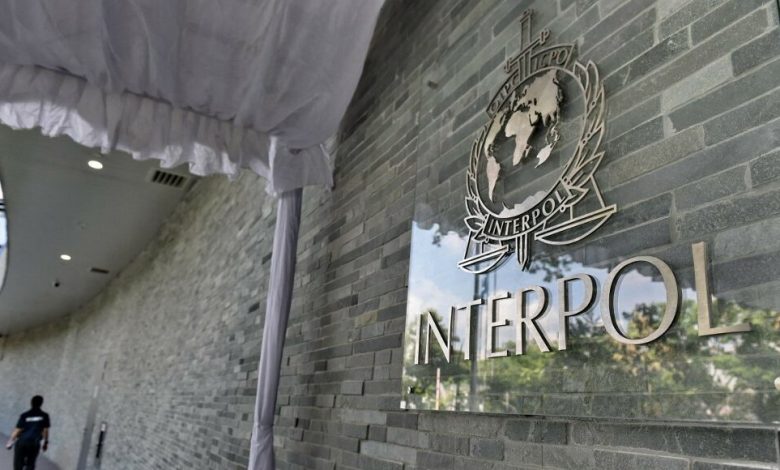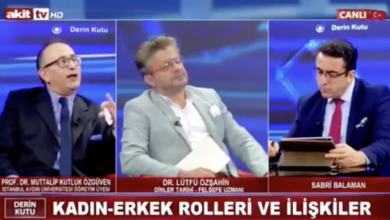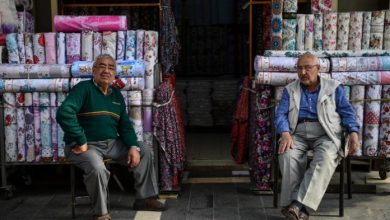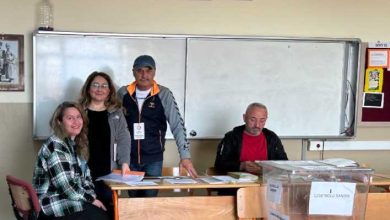Turkey grants INTERPOL staff diplomatic immunity ahead of İstanbul meeting
Turkish President Recep Tayyip Erdoğan’s approval of an agreement between the Turkish government and INTERPOL was published in the country’s Official Gazette.

Turkey on Friday granted a series of privileges to International Criminal Police Organization (INTERPOL) staff attending the 89th annual meeting of its General Assembly (GA) on November 23–25, 2021 in İstanbul, including diplomatic immunity for the attendees and their families and tax exemption for gifts and materials associated with the meeting during their stay.
On Friday, Turkish President Recep Tayyip Erdoğan’s approval of an agreement between the Turkish government and INTERPOL was published in the country’s Official Gazette.
According to the agreement, INTERPOL staff and their family members will enjoy the same immunity granted to foreign diplomats during their stay. The attendees will also be exempt from taxes for gifts and materials associated with the meeting.
According to critics, Erdoğan is trying to bribe INTERPOL officials to pursue his political opponents abroad.
According to a report by The Heritage Foundation published on Monday, President Erdoğan is preparing to exploit the GA meeting through presentations and fabricated documents based on statements extorted from supposed participants in a 2016 coup attempt, which is used by his government as a pretext to quash dissent.
Erdoğan has also invited the representatives’ families to the GA meeting at Turkey’s expense and is preparing to shower them with gifts, according to the report.
“Its goal is reportedly to convince and bribe the GA into accepting that the individuals it is pursuing through Interpol are legitimate targets,” the report said.
According to a report by the Stockholm Center for Freedom, the Turkish government, under President Erdoğan, has used the International Notice System, such as Red Notices and diffusions, to target political opponents who have done nothing more than criticize the government.
Similarly, it has also abused Interpol’s Stolen and Lost Travel Documents Database (SLTD) by filing tens of thousands of notifications for critics and opponents who, in many instances, were not even aware that their passports had been invalidated. In several cases, some of these people were stranded at international airports or put in detention before they were released or, in the worst cases, were handed over to Turkish operatives and ended up in Turkish prisons.
While many countries have been refraining from hosting international events due to COVID-19, Turkey was willing to host the meeting.
The event will be attended by the INTERPOL representatives of 194 member states. Each country has one vote at the meeting.
The Turkish government has been conducting an intensive lobbying campaign to alter INTERPOL’s policies concerning its passport cancellations. All participants have been invited along with their family members, and the Turkish government will cover all their expenses.
In addition to passport cancellations, Turkey also sent thousands of Red Notice requests after the coup, mostly for alleged members of the Gülen movement, which the Turkish government accuses of orchestrating the abortive putsch. These requests were rejected by INTERPOL on the grounds that they were political. Article 3 of the organization’s constitution prohibits INTERPOL’s involvement in crimes with a military, political, religious or racial dimension. While the Turkish side insists that their requests concern terrorism, sending several delegations to Lyon, it has thus far not been able to convince its interlocutors.
In 2017 Turkey changed strategy and started to flag its dissidents’ passports as lost or stolen on INTERPOL’s relevant database as a backdoor method to cancel the passports. After a wave of complaints, INTERPOL established that Ankara was in violation of regulations and restricted Turkey’s access to the system. One of the Turkish government’s aims at the İstanbul meeting will be the lifting of these measures.
Highlighting the importance attached to the upcoming event, Deputy Foreign Minister Yavuz Selim Kıran said at a parliamentary meeting in June that INTERPOL was failing to honor its obligations in fighting terrorism.
“In our cooperation with INTERPOL, we are facing problems such as the rejection of Red Notice … requests, the deletion of existing Red Notices and the blocking of Turkey’s access to the Stolen and Lost Travel Document Database. By hosting this meeting, we will explain our anti-terror policies, particularly concerning FETÖ,” Kıran said, using the Turkish government’s derogatory term to refer to the Gülen movement. “From this perspective, the event will be a significant opportunity.”
Lütfi Çiçek, the chair of Turkey’s national INTERPOL bureau, announced that the delegates were expected with their family members and that they were preparing “social programs that include many activities.”
“THE TURKISH GOVERNMENT ATTACHES GREAT IMPORTANCE TO THE MEETING.”
Oğuzhan Albayrak, a former Turkish diplomat and the director of the German-based Human Rights Defenders, considers the possible outcomes of Turkey’s efforts to convince INTERPOL.
“The Turkish government attaches great importance to the meeting. Rather than a general assembly, they have prepared an impressive holiday program for the INTERPOL members, that is why families were included,” Albayrak says.
“Turkey will seek the removal of restrictions on its Red Notice requests, passport cancellations and lost and stolen passport entries. Turkey has thus far abducted more than 100 Gülen movement members, mostly in countries with lower democratic standards, and forcibly rendered them to Turkey. If Erdoğan’s requests are approved in the general assembly, hundreds will be added to this. His critics are currently stuck in many countries around the world, and they are unable to return out of fear of getting arrested. Taking their passports away will only mean cooperation with the regime and destruction of the democratic values that INTERPOL represents.”




